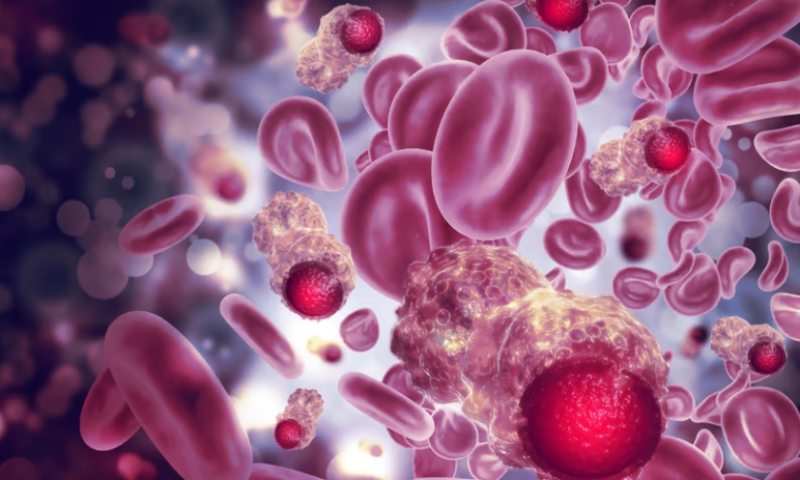Myelofibrosis is the cancer that keeps going and going—and AbbVie hopes new data from the phase 2 med navitoclax can make the case for stopping the rare and difficult-to-treat disease in its tracks.
AbbVie tested the therapy in combination with ruxolitinib in a phase 2 study called Refine that featured patients who had progressed or had a suboptimal response after at least 12 weeks of ruxolitinib alone. Ruxolitinib is a janus kinase (JAK) inhibitor marketed by Incyte as Jakafi. Refine is a dose-finding study, but efficacy outcomes are also being studied.
The results were presented at the American Association for Cancer Research (AACR) meeting in New Orleans.
Myelofibrosis is a rare blood cancer that causes excess scar tissue to build up in the bone marrow, causing patients to experience an enlarged spleen, fatigue, weakness and severe anemia. The disease can also transform into a more aggressive cancer such as acute myeloid leukemia.
The exploratory analysis from the mid-stage trial was looking at two biomarkers believed to signal disease modification: antifibrosis activity that is measured by a reversal of bone marrow fibrosis and reduction in driver gene variant allele frequency. This latter biomarker is a measure of the amount of mutated gene remaining. The biomarkers have yet to be linked to a survival benefit.
AbbVie found that 12 out of 32 evaluable patients experienced improvements in bone marrow fibrosis at any point in the study. On the second biomarker, six out of 26 evaluable patients achieved a 20% reduction at week 24. Five of the patients experienced reductions in both biomarkers.
So far, the median overall survival for the enrolled patient population has not been reached, meaning AbbVie is still tracking how long the patients survive after treatment. For patients who did not see an improvement in either biomarker, the median overall survival was 28.5 months.
Adverse events occurred in all 34 patients in the study, including 15 patients who experience serious adverse events, AbbVie said. The most common reactions were low platelet counts, diarrhea, nausea and fatigue. The serious adverse events were pneumonia and splenic infarction, which is when blood flow to the spleen is compromised. No bleeding occurred and the incidents of low platelet count, called thrombocytopenia, were manageable and reversible with a reduction in dose or interruption of treatment.
AbbVie reduced the dose after discovering these adverse events.
Jacqueline Garcia, M.D., Dana-Farber Cancer Institute, assistant professor of medicine at Harvard Medical School, noted that all patients who experienced a reduction in the biomarkers were alive at the time of analysis. The navitoclax and ruxolitinib combination seemed to work even though the patients had underlying risk factors for further mutations.
Navitoclax is being studied in this phase 2 trial and a late-stage registrational study.

